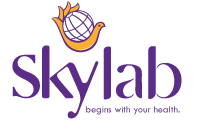No products in the cart.: ₹0.00
This test is primarily used to screen infants for an inherited adrenal gland condition known as congenital adrenal hyperplasia (CAH). It is frequently performed on infants born with exterior genitals that do not resemble those of a male or female. High levels of 17-OH progesterone may suggest congenital adrenal hyperplasia (CAH). CAH is a glandular illness that causes the adrenal glands to produce insufficient cortisol and may enhance the production of male sex hormones known as androgens.
17-Hydroxyprogesterone
What is the 17-hydroxyprogesterone (17-OHP) test?
This test determines the concentration of 17-hydroxyprogesterone (17-OHP) in your blood. Your adrenal glands produce a chemical called 17-OHP.
Your adrenal glands are two tiny structures located on top of each kidney. They produce a variety of hormones required for survival and good health. Hormones are chemical messengers in your bloodstream that regulate the activity of specific cells or organs.
Normally, your adrenal glands use 17-OHP to produce a hormone called cortisol. Cortisol regulates your energy levels, blood glucose (sugar), blood pressure, and how your body responds to stress, disease, and injury.
A 17-OHP test can help diagnose a set of rare, inherited genetic illnesses that impair how well your adrenal glands produce cortisol. These genetic adrenal gland abnormalities are known as congenital adrenal hyperplasia (CAH).
People with CAH have a gene mutation that prevents them from producing an enzyme required by their adrenal glands for hormone production. A lack of the enzyme 21-hydroxylase is what causes the most common type of CAH. 21-hydroxylase aids your adrenal glands in producing cortisol by converting 17-OHP into it.
Without enough 21-hydroxylase, the adrenal glands fail to produce adequate cortisol. As the adrenal glands work harder to perform their functions, they swell and produce unusually high levels of 17-OHP. These elevated levels of 17-OHP are indicative of CAH with 21-hydroxylase insufficiency.
The adrenal glands use the additional 17-OHP to produce more male sex hormones than they normally do. This occurs in children and adults of both genders. As a result, tests for male hormones, such as testosterone, are frequently combined with 17-OHP tests to aid in the diagnosis of CAH.
The amount of cortisol that the adrenal glands can produce determines the symptoms of CAH. CAH is commonly divided into two categories based on the severity of the symptoms:
The term classic CAH refers to the most severe manifestations of the condition. It is commonly diagnosed at birth. Severe CAH is potentially fatal if not diagnosed and treated. Serious symptoms may appear immediately after birth. They may include:
- Dehydration
- Low blood pressure.
- Possible symptoms include an abnormal heartbeat (arrhythmia) and shock.
Newborn girls with severe CAH may have external genitals that are not unmistakably feminine or masculine. Increased levels of masculine hormones are to blame for this. The genitals in newborn boys are normally normal; however, the penis can be larger than average.
17-OHP tests can detect conventional CAH brought on by a 21-hydroxylase deficit. CAH is less commonly caused by a deficiency in another enzyme.
Nonclassic CAH encompasses milder types of the illness. It is also known as late-onset CAH since the symptoms appear between early childhood and early adulthood. A 17-OHP test can pinpoint the nearly universal cause of it, which is a 21-hydroxylase deficiency.
Treatment is only necessary if a person exhibits symptoms. The symptoms vary depending on the individual’s age and gender. For example:
- Children may exhibit indicators of early puberty, which signifies sexual development before the age of eight in girls and nine in boys.
- Teenage girls and women may have unusually thick facial and body hair, as well as a deep voice.
Adults may experience infertility.
Different names: 17-OH progesterone, 17-OHP, 17 alphahydroxyprogesterone, 17 hydroxyprogesterone: serum; progesterone: 17-hydroxy
What exactly is it used for?
A 17-OHP test is used to identify and monitor the most frequent kind of CAH, which is also known as 21-hydroxylase deficiency. The test is used for:
- Screen all babies for severe CAH (classic CAH). Newborn screening tests cannot detect moderate CAH (nonclassic).
- Assist in the diagnosis of mild CAH in children, adolescents, and adults who display symptoms that the illness might be causing.
- Determine whether your CAH treatment is effective.
Help rule out CAH in women who have certain symptoms, such as excessive facial hair and irregular menstrual periods. Other disorders, including polycystic ovarian syndrome (PCOS), can also induce the same symptoms.
Why do I need to take a 17-OHP test?
Babies require a 17-OHP test as part of regular newborn screening testing to check for severe CAH.
If you give birth in a hospital, your infant will normally receive a 17-OHP test before being discharged. The test is most accurate when administered more than 24 hours after birth. If your baby is tested sooner, ask your child’s provider if a second test should be performed later. Some states mandate two tests for all babies.
If you give birth at home, ensure that your infant has all the essential screening tests.
Symptoms of severe CAH typically appear within days or weeks of birth; however, in other cases, they may not appear until early childhood. These symptoms could be serious and include:
- Lack of energy.
- Vomiting and other feeding issues.
- Diarrhoea
- Dehydration
- Failure to flourish (not gaining weight or growing as predicted).
- Children, teenagers, and adults may require testing if they develop symptoms of moderate CAH (nonclassic CAH).
The symptoms of mild CAH in children and adolescents include:
- Rapid growth that ends at a younger age than expected. As a result, older teens and adults with CAH may be shorter than usual.
- Signs of early puberty.
- Severe acne that may last throughout adulthood.
Mild CAH symptoms in girls and women can include:
-
Increased facial and/or body hair than usual
-
Irregular menstrual cycles or no periods at all
-
Thinning hair on the head, particularly near the temples (male pattern baldness)
-
Enlarged clitoris.
-
Infertility
Mild CAH symptoms in boys and men can include:
- Larger penis with smaller testicles (testes)
- Low Sperm Count
- Infertility
What happens during the 17-OHP test?
A newborn screening involves a health care provider cleaning your baby’s heel with alcohol. The clinician will next stick a little needle into the baby’s heel to collect a few droplets of blood. The heel will then be wrapped.
For older children and adults, a health care practitioner will use a small needle to draw blood from a vein in your arm. After the needle is placed, a small amount of blood is drawn into a test tube or vial. When the needle is inserted or removed, you may experience a mild sting. This normally takes under five minutes.
Will I have to do anything to prepare for the test?
There are no specific preparations required for the 17-OHP test.
Is there any risk to the test?
Blood tests pose an extremely minimal risk. You may experience some pain or bruising at the site where the needle was inserted, but most symptoms resolve rapidly. When your baby’s heel is pricked, he may feel a small pinch. A little bruise may appear on the heel, but it should go rapidly.
What do the findings indicate?
A 17-OHP test can determine whether you or your kid have the most frequent kind of CAH, which is characterised by a deficiency of 21-hydroxylase.
If the test results reveal a normal quantity of 17-OHP, it is likely that you or your child do not have CAH with 21-hydroxylase deficiency. If you or your child exhibit symptoms, the provider may prescribe more testing to determine the cause.
If the test results show higher than usual levels of 17-OHP, you or your child most likely have CAH. The clinician may prescribe additional testing to understand more about how CAH affects you or your child.
If you or your child are being treated for CAH, declining 17-OHP levels over time indicates that the treatment is effective. CAH treatment may include medications to replace cortisol, which your body is unable to produce. Other medications may be required, depending on the type of CAH. If a female is born with abnormal external genitals, surgery may be performed.
If you, your kid, or another family member have been diagnosed with CAH, you should consult with a genetic counsellor. Genetic counsellors receive training in genetics and genetic testing. They can help you determine how likely it is that you will pass CAH on to future children.
If you have any questions about the findings of a 17-OHP test, speak with your provider.
Learn more about laboratory tests, reference ranges, and how to interpret results.
Is there anything more I should know about the 17-OHP test?
If the findings of your 17-OHP test are unclear, your doctor may prescribe another test to determine your 17-OHP. This is known as an ACTH stimulation test. Cortisol and 17-OHP levels are measured before and after an ACTH (adrenocorticotropic hormone) injection.
ACTH is a hormone that your body produces to signal your adrenal glands to produce cortisol. If you have CAH, the ACTH injection will significantly boost your 17-OHP levels, but not your cortisol levels.
| Skylab Clinical Laboratory | Best Clinical Lab | Laboratory in Attukal | Laboratory in Sasthamangalam | Laboratory in Karamana | Laboratory in Chala | Laboratory in Attakulangara | Laboratory in East Fort | Laboratory in West Fort | Laboratory in Kaithamukku | Laboratory in Pallimukku | Laboratory in Pettah | Laboratory in Vachiyoor | Laboratory in Plamoodu | Laboratory in Vazhuthacud | Laboratory in Ambalamukku | Laboratory in Peroorkada | Customer Friendly | Affordable Price | Convenience | Online appointment | Home Collection Available |

